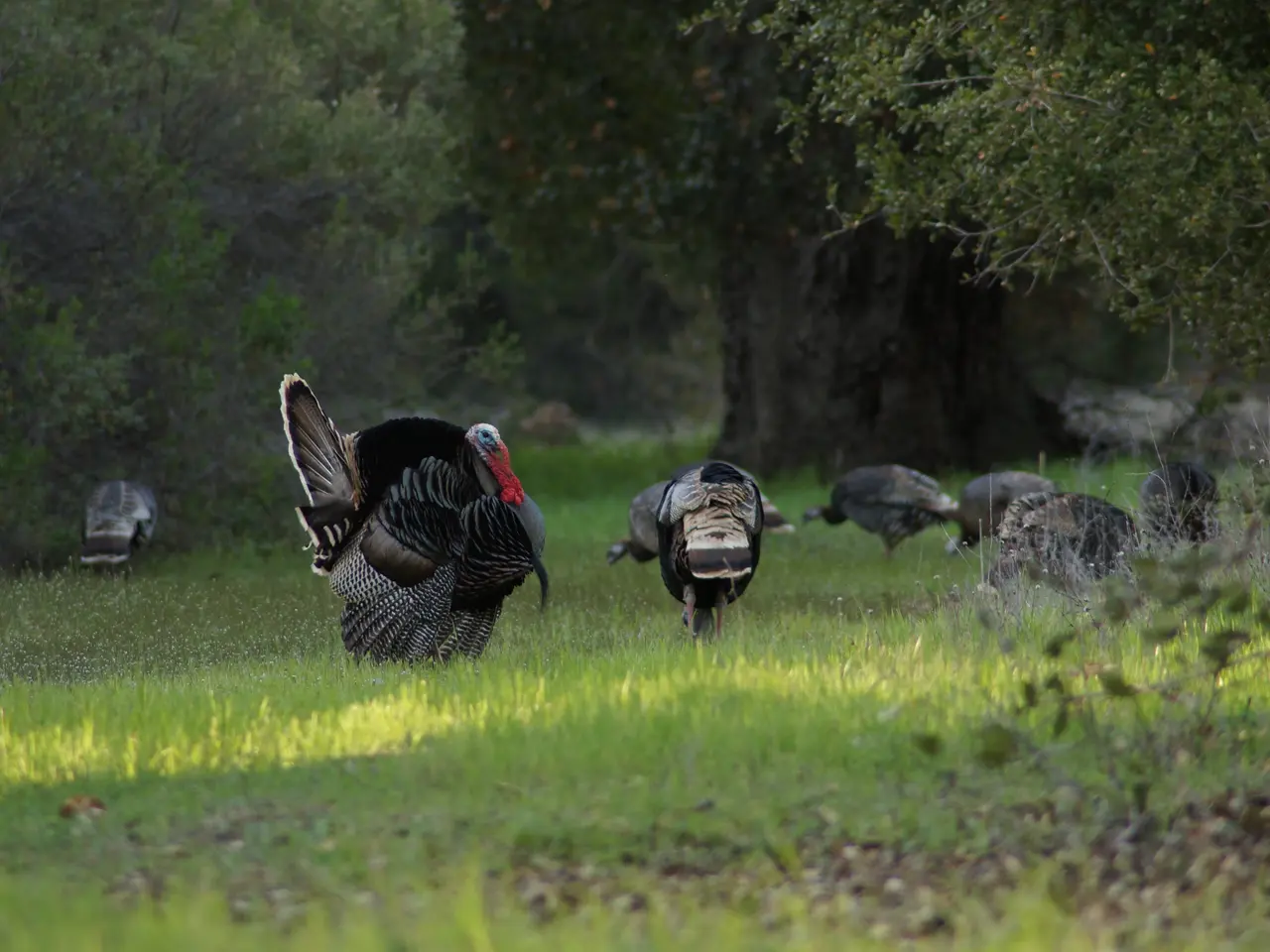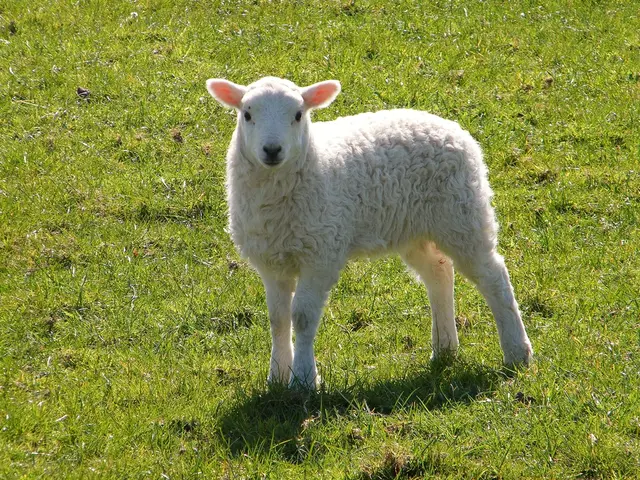Diet of Wild Turkeys vs Farm Turkeys: Food Habits Compared
In the natural world, wild turkeys and their domesticated counterparts have distinct feeding habits that cater to their unique needs.
Wild turkeys, expert foragers, thrive in various environments such as forests, grasslands, and even suburban areas. Their diet varies seasonally, with a focus on nuts and fruits in autumn, complemented by insects and small animals during summer. In early spring, they consume fresh greenery, seeds, and insects, which provides essential protein for the breeding season. By summer and fall, their diet expands to include berries, acorns, and wild grapes.
Eastern turkeys, a common wild subspecies, are particularly adaptable eaters, consuming a diverse range of foods that are available to them. Their plant-based diet can include small amphibians, nuts, and grains from farm fields. Heritage turkeys, closer to their wild ancestors, may also consume insects, worms, and other small invertebrates.
On the other hand, domesticated turkeys rely on humans for their meals. Farmers provide specialized feed to ensure their growth, with most turkeys eating a controlled diet of grains, proteins, and supplements. This diet caters to their rapid development, as they require high-protein foods, especially during their early stages of life.
Baby turkeys, or turkey poults, require specific care to ensure they receive proper nutrition. Without enough protein, they may struggle to develop properly, become more susceptible to disease, and not be able to fend off predators in the wild. In contrast, poults raised in the wild depend on their mother to lead them to the best food sources, learning to forage for insects and plants as they grow.
It's essential to note that while chicken feed can work in a pinch, turkey-specific feed is better for the long-term. This feed contains extra nutrients like protein and niacin, tailored for the rapid development of turkeys.
This article was created in conjunction with AI technology and fact-checked and edited by a website editor to ensure accuracy and clarity. Farmers carefully monitor the diet of farm-raised turkeys to ensure they receive all necessary nutrients, while wild turkeys forage for a diverse range of foods to meet their dietary needs.
Read also:
- Unraveling green assertions: Key insights for corporate reporters
- Unique research partnership commences between Dutch and German institutions focused on childhood cancer treatments
- Trump faced a caution from a world leader about the independence of the Federal Reserve.
- Harness the Power in Medical Advertising: In-Depth Look at a Database for Surgeons' Emails








